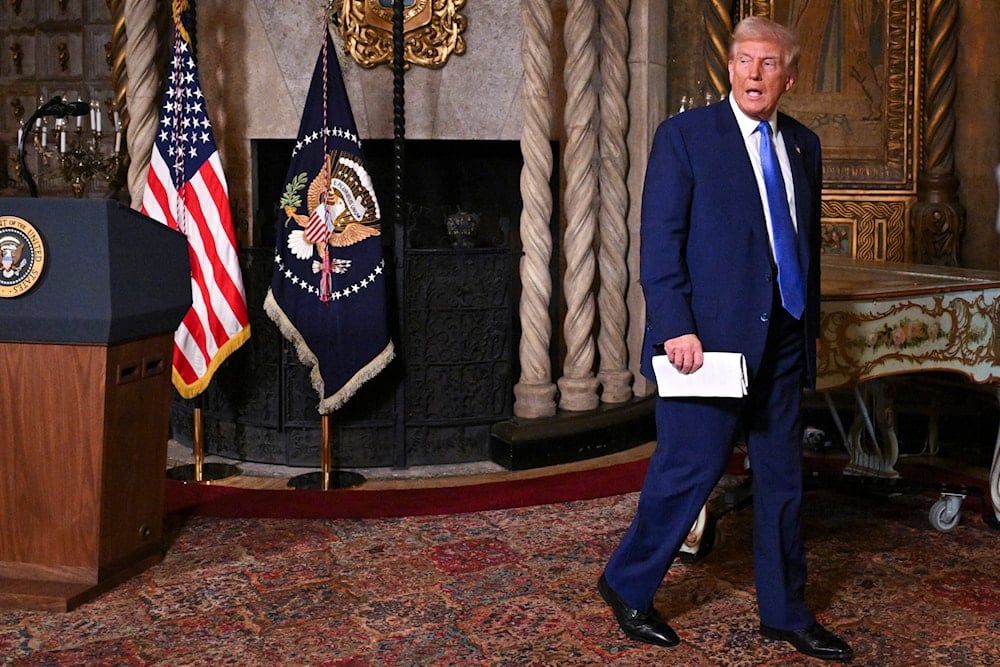Trump announces tariffs on automobiles, pharmaceutics, semiconductors
The newest chapter in Trump's tariffs targets pharmaceuticals and semiconductor chips which are essential for modern computing, while tariffs on automobiles remain vague.
-

President Donald Trump departs after speaking at Mar-a-Lago in Palm Beach, Florida, on Tuesday, February 18, 2025. (AP)
US President Trump announced he is planning to impose tariffs on semiconductors and pharmaceuticals "in the neighborhood of 25%" on Tuesday, following his Friday announcement that levies on automobiles would be imposed around April 2.
Trump told reporters that the tariffs on pharmaceuticals and semiconductor chips would start at "25% or higher", raising pre-existing tariffs significantly without specifying a date, explaining that he wanted to leave manufacturers with time to set up factories in the United States to avoid those tariffs.
He did not offer any more details about his tariff on automobiles other than the date, but Trump has been long planning this move, expressing his disdain for foreign markets' treatment of US automotive exports, like the European Union, which collects a 10% tariff on vehicle imports.
Trump tariffs make the US a 'scary place to invest'
Trump's flurry of tariffs is making the United States a "scary place to invest" according to Nobel winner economist Joseph Stiglitz, who said in an interview with The Guardian that Trump's tariffs and disregard for the rule of law "risks the worst of all possible worlds: a kind of stagflation."
He noted that Elon Musk's Department of Government Efficiency's slashing of government departments without congressional authorization and the US president's disrespect for contracts make investments risky in the United States.
"The government has a huge number of contracts and we’re just tearing them up. How much risk do you want? The US has become, I would say, a scary place to invest," Stiglitz said, adding, "I could certainly see a scenario where we get to stagflation – we get inflation and a weak economy."
Tariffs raise concerns of trade war
Trump's trade advisors were finalizing plans for reciprocal tariffs last Wednesday against any countries who impose duties on United States imports, following his sudden decision to impose a 25% tariff on all steel and aluminum imports to the United States.
The tariff on steel and aluminum triggered strong reactions from the European Union, and EU Commission President Ursula von der Leyen expressed she deeply regretted the decision, "Unjustified tariffs on the EU will not go unanswered - they will trigger firm and proportionate countermeasures. The EU will act to safeguard its interests."
German Chancellor Olaf Scholz promised that the EU would respond to Trump's tariffs, saying, "If the US leaves us no other choice, then there will be a united reaction of the EU," while expressing hopes they "will avoid the mistaken path of tariffs and counter-tariffs. Trade wars always cost both sides prosperity in the end."
Canada's foreign minister expressed deep concern over the possibility of US tariffs on February 15, describing them as an "existential threat" to Canada, despite the United States' decision to push the tariffs back for 30 days.

 3 Min Read
3 Min Read










